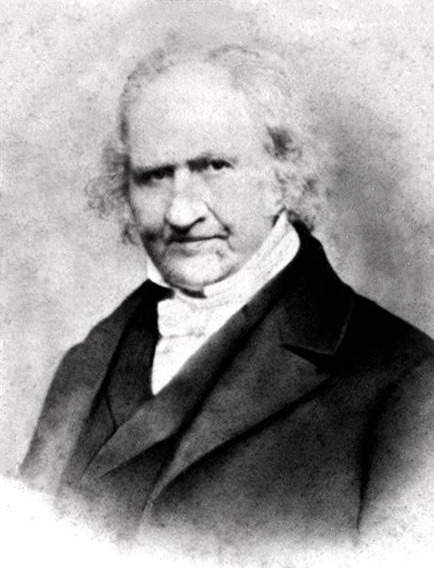Carl Wigand Maximilian Jacobi
Carl Wigand Maximilian Jacobi (10 December 1804 – 18 February 1851) was a German mathematician, known for his fundamental contributions in the fields of differential equations, dynamics, and especially elliptic functions. His work has had a profound influence on the development of mathematics in the 19th century and remains of significant interest today.
Biography[edit | edit source]
Carl Jacobi was born in Potsdam, Prussia (now Germany), into a Jewish family. He showed an early interest in mathematics and was educated at the University of Berlin, where he was influenced by the works of Euler, Lagrange, and Laplace. Jacobi held positions at the University of Königsberg, where he spent the majority of his academic career.
Contributions to Mathematics[edit | edit source]
Jacobi's contributions to mathematics were extensive and varied. He is perhaps best known for his work on elliptic functions and their applications. His studies in this area laid the groundwork for much of modern mathematical analysis and were instrumental in the development of the theory of functions of a complex variable.
Elliptic Functions[edit | edit source]
Jacobi's work on elliptic functions, particularly his formulation of the Jacobi elliptic functions, was groundbreaking. He introduced the theta function and used it to solve various problems in analysis and number theory. His notation and approaches are still used in the study of elliptic functions today.
Jacobi's Theorem[edit | edit source]
Among his many contributions to mathematics, Jacobi's theorem is particularly notable. It provides conditions under which the number of real roots of a polynomial can be determined. This theorem has applications in various areas of mathematics and physics.
Other Contributions[edit | edit source]
Jacobi made significant contributions to the theory of differential equations, mechanics, and mathematical physics. His work on the Hamilton-Jacobi theory is of particular note, providing a powerful method for solving problems in classical mechanics and leading to the development of quantum mechanics.
Legacy[edit | edit source]
Carl Jacobi's influence on mathematics is profound. His methods and theories continue to be relevant in various fields of mathematics and physics. The Jacobi identity in Lie algebra, the Jacobi symbol in number theory, and the concept of Jacobi matrices in numerical analysis are just a few examples of his lasting impact.
Jacobi was also known for his dedication to teaching and his ability to inspire his students. Despite his relatively short life, his work has left an indelible mark on the mathematical sciences.
Death[edit | edit source]
Carl Jacobi died on 18 February 1851 in Berlin, at the age of 46. His health had been deteriorating due to overwork and the pressures of his academic responsibilities. Despite his early death, his contributions to mathematics have ensured his place as one of the 19th century's most influential mathematicians.
Navigation: Wellness - Encyclopedia - Health topics - Disease Index - Drugs - World Directory - Gray's Anatomy - Keto diet - Recipes
Search WikiMD
Ad.Tired of being Overweight? Try W8MD's physician weight loss program.
Semaglutide (Ozempic / Wegovy and Tirzepatide (Mounjaro / Zepbound) available.
Advertise on WikiMD
WikiMD is not a substitute for professional medical advice. See full disclaimer.
Credits:Most images are courtesy of Wikimedia commons, and templates Wikipedia, licensed under CC BY SA or similar.Contributors: Prab R. Tumpati, MD

